HILTON (SRI LANKA)
Q: What measures must organisations take to create ‘a great workplace for all’?
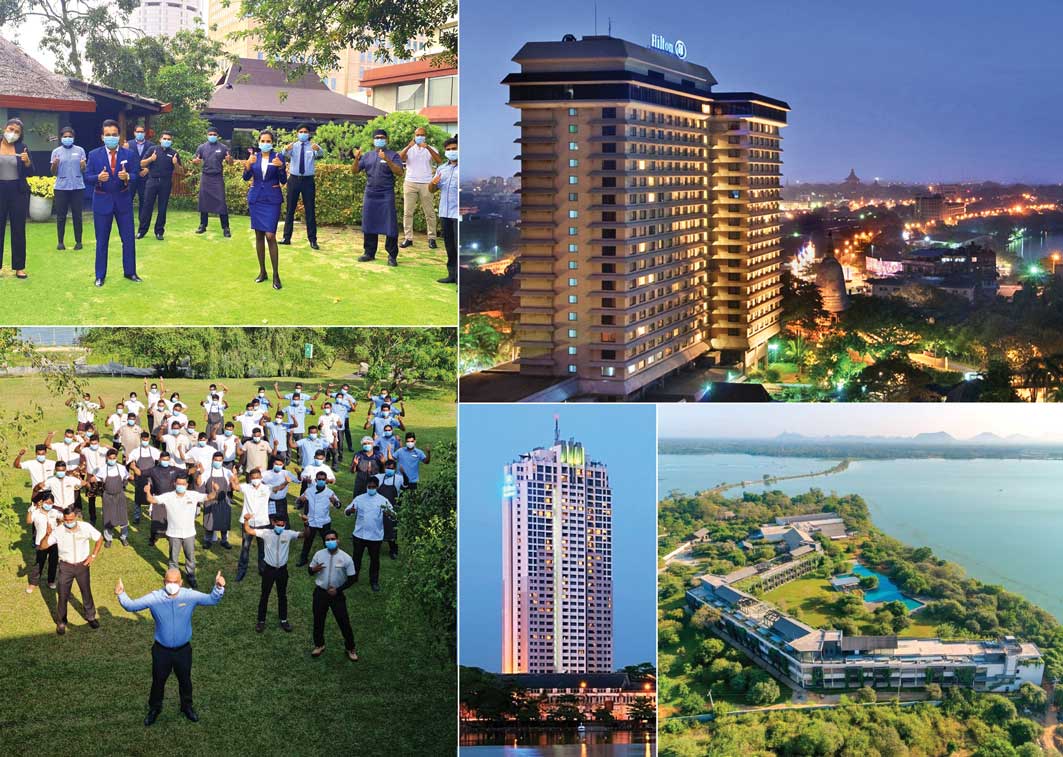 Manesh Fernando (MF): Employees should be enthusiastic and jovial at the prospect of attending work.
Manesh Fernando (MF): Employees should be enthusiastic and jovial at the prospect of attending work.
An organisation’s philosophy needs to be reconsidered if a team member harbours a certain level of disdain and animosity towards his or her workplace. Team leaders should shoulder the responsibility of creating a hospitable and friendly work environment for all their members.
Hilton (Sri Lanka) has a unique set of values and culture. It is the duty of senior leaders to ensure that these are reflected at the highest level possible.
Moreover, it’s important to maintain the functionality of all operational mechanisms and ensure that they come into play in the wake of unforeseen complications.
Decision makers should make it a priority to gather and review the input and feedback of their teams. Facilitating their ability to voice opinions is insufficient on its own as leaders should look to implement corrective measures to address the grievances that have been raised by team members.
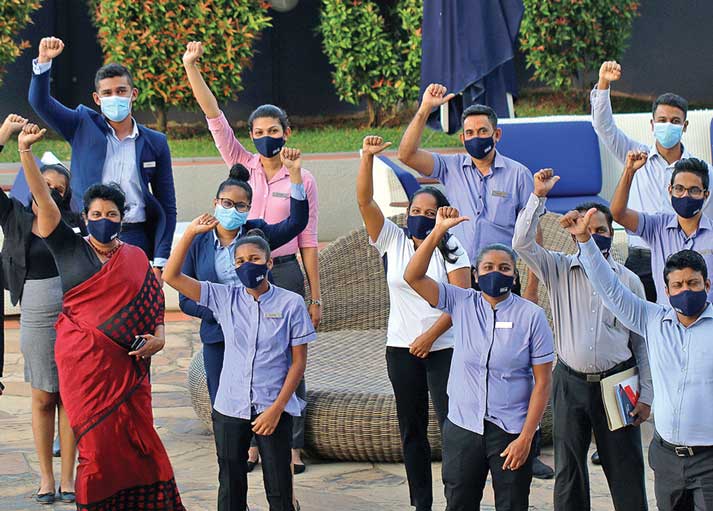 Q: In your opinion, what are the main elements of a ‘great workplace’?
Q: In your opinion, what are the main elements of a ‘great workplace’?
Linda Giebing (LG): I believe that a great workplace comprises three components.
At Hilton (Sri Lanka), team members are invited to partake in a learning journey. We encourage innovation and understand that team members can thrive as a result of their confidence. To this end, our leaders offer assistance to develop their skills and knowledge.
Recognition and rewards are interwoven with this sphere as they enhance the company’s vision to promote development.
Trust is the second component of a great workplace. When fostered, it’s easier to develop a sense of community where there is reliance and support throughout every layer of the organisation. This simplifies the process of achieving overarching goals and objectives.
Safety and security comprise the final component. This encompasses the emotional and spiritual wellbeing of team members. A person is at his or her best when all three states of his or her wellbeing are properly nurtured.
Hilton strives to encapsulate this with an internal programme called THRIVE.
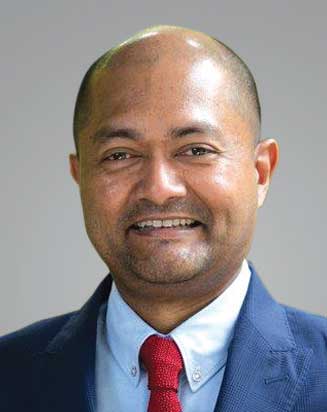 Q: How has Hilton (Sri Lanka) adapted to the changes brought about by the third wave of the COVID-19 pandemic?
Q: How has Hilton (Sri Lanka) adapted to the changes brought about by the third wave of the COVID-19 pandemic?
LG: The Hilton CleanStay standard that was introduced last year heightened our cleaning and sanitation protocols in all areas of the hotel.
The move – which was implemented to ensure everyone’s safety – was greatly appreciated by our guests and team members. This confidence in our strategies and the endorsement of the authorities helped us manage the recent wave of the pandemic.
It’s important to understand that a pandemic is likely to take a toll on the team’s emotional wellbeing.
Our team members endured a series of rigorous training and educational discussions to improve their physical wellbeing. Furthermore, this has enabled the team to cope with the mental stress associated with the pandemic.
I believe that the hospitality sector has developed greater resilience and a sense of purpose courtesy of the global pandemic.
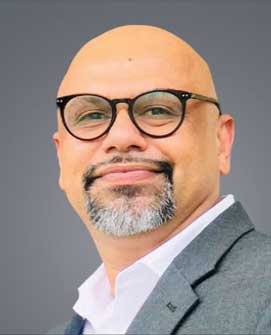 Q: Did the pandemic have a notable impact on the organisation’s culture?
Q: Did the pandemic have a notable impact on the organisation’s culture?
Krishanta Damunupola (KD): The pandemic has had a significant impact on the workplace culture.
The change put Hilton (Sri Lanka) in such a position where we were only able to accommodate minimum room occupancy. Our teams were compelled to adapt to every aspect of the ‘new normal’ lifestyle.
Our leadership team had to reevaluate the company’s business model while staying true to the original Hilton culture. We needed to adapt to new ways of operating to create a safe and secure environment for all stakeholders.
Working from home (WFH), remote learning and team engagement are a few new areas that the team had to adapt to during the last 12 or so months.
The pandemic has enabled the team to adopt an empathetic perspective when dealing with customers. They are motivated to work with more agility and discover unorthodox ways to deliver optimum customer satisfaction.
Despite the challenges, I am certain we managed to prove that the spirit of Hilton (Sri Lanka) cannot be quarantined.
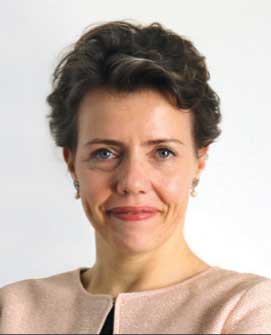 Q: What measures does Hilton (Sri Lanka) take to maintain organisational agility?
Q: What measures does Hilton (Sri Lanka) take to maintain organisational agility?
KD: Our survival has been the result of organisational agility.
The pandemic has been unpredictable and introduced several new constraints. Hilton (Sri Lanka) has had to adopt flexible work processes in a short period.
Team members were encouraged and empowered to solve problems independently, regardless of their status and designation, as a means to ensure agility in the workflow.
Q: And what are the ways in which a culture of trust and transparency can improve an organisation?
MF: Everyone has the right to be informed if they are to comprehend the severity of a situation.
It is easy for an organisation to flaunt financial results that were achieved during a peak season. Only a company that is committed to fostering trust and transparency would be able to accept the reality, and disclose its true performance.
There is a saying that ‘victory has a thousand fathers but defeat is an orphan.’ We believe that the consistency with which trust and transparency is maintained will hold an organisation in good stead.
INTERVIEWEE DETAILS
Manesh Fernando
Area General Manager – Sri Lanka
General Manager – Hilton Colombo
Linda Giebing
General Manager
Hilton Colombo Residences
Krishanta Damunupola
General Manager
DoubleTree by Hilton
COMPANY DETAILS
Telephone:2492492
Email:colombo@hilton.com
Website:www.hilton.com



